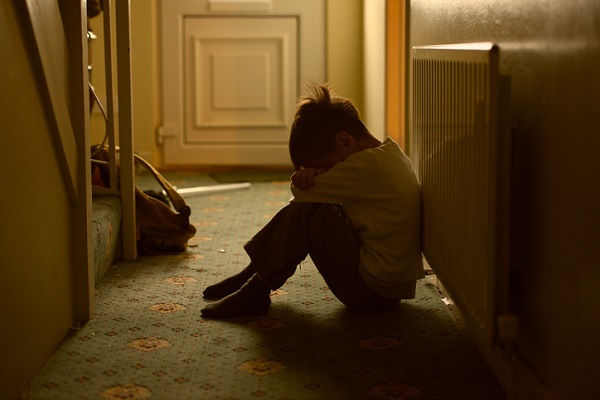Much attention has been directed towards the transformative power of grit, hard work, and perseverance. Studies have determined that those who possess “grit” are more likely to follow through on commitments, stay in school, and succeed later in life (Duckworth, n.d.). However, tenacity may only be part of the picture (Denby, 2016).
The ACE Study is a landmark investigation into the lasting impact that childhood trauma can have on an individual (Centres for Disease Control and Prevention, 2016). The ACE Study initially took place from 1995 to 1997, but has now grown into a lasting investigation that continues to this day (Centres for Disease Control and Prevention, 2016). What did this study uncover and why is it so important for aspiring trauma counsellors? Here we will explore its findings and the significance behind them.
Trauma Can Have a Lasting Impact on a Person’s Life
The objective of the ACE Study was to examine the prevalence and impact of adverse childhood experiences (ACEs) (Centres for Disease Control and Prevention, 2016). Did traumatic experiences early in life have an impact on later health, success, and well-being, and if so, how great was that impact? Through survey questionnaires, the ACE Study attempted to uncover the answer.
The study defined adverse childhood experiences as experiences that were deeply traumatic, such as abuse, neglect, and household challenges such as an addiction in the family or the imprisonment of a family member (Centres for Disease Control and Prevention, 2016). It determined that “ACEs are strongly related to development of risk factors for disease, and well-being throughout the life course.” (Centres for Disease Control and Prevention, 2016) Those who had experienced one or more adverse childhood experiences were at a greater risk of developing a substance misuse disorder, engaging in risky sexual behaviour, developing depression, attempting suicide, having financial difficulties, and experiencing difficulty at school (Centres for Disease Control and Prevention, 2016). In fact, it even found that physical health was impacted, as ACEs were also linked with liver disease, chronic obstructive pulmonary disease, and ischemic heart disease (Centres for Disease Control and Prevention, 2016).

Adverse childhood experiences can have a lasting impact
The study found that not only was one ACE deeply impactful, but that individuals who had experienced several adverse childhood experiences were at an even greater risk of later difficulty (Centres for Disease Control and Prevention, 2016). It found that “Persons who had experienced four or more categories of childhood exposure, compared to those who had experienced none, had 4- to 12-fold increased health risks for alcoholism, drug abuse, depression, and suicide attempt; a 2- to 4-fold increase in smoking, poor self-rated health, ≥50 sexual intercourse partners, and sexually transmitted disease; and a 1.4- to 1.6-fold increase in physical inactivity and severe obesity.” (Felitti, et al., 1998)
Trauma Is More Common than many Initially Believed
The lifelong impact of childhood trauma was an important finding uncovered by the ACE Study. However, there was another important and deeply troubling finding that this study uncovered. The ACE Study also found that adverse childhood experiences are more common than initially believed, as “Almost two-thirds of study participants reported at least one ACE, and more than one in five reported three or more ACEs.” (Centres for Disease Control and Prevention, 2016). According to the study, 28.3% of the population experiences physical abuse before the age of 18, and 20.7% experience sexual abuse (Centres for Disease Control and Prevention, 2016). 12.7% of young children grow up in an environment where their mother is treated violently, and 26.9% live in an environment where at least one family member has had a substance misuse disorder (Centres for Disease Control and Prevention, 2016). For those completing counselling therapist training, these findings are deeply alarming.
How Graduates of Counselling Therapist School Can Help Clients Heal and Thrive
Given the strong link between adverse childhood experiences and the adoption of risky behaviours and poor wellness outcomes, it is becoming increasingly apparent that prevention and healing from trauma are essential. Knowing that adverse childhood experiences can negatively impact teens and adults can help move the current dialogue away from grit and stoicism and towards a nurturing approach that favours healing and wellness (Denby, 2016). Here, professionals with counsellor training can be especially valuable.

Trauma counsellors help others heal and thrive
Healing from trauma is no easy or quick process, but it can often begin by acknowledging the events that happened and the emotions that they lead to (Taibbi, 2016). An individual living with trauma may unconsciously express their feelings and fears through negative thought patterns and behaviours (Taibbi, 2016). Therefore, recognizing this is an important first step. From here, therapists can encourage a client to develop healthy coping mechanisms and reach closure (Taibbi, 2016). Over time, a client may even decide to push themselves further at school or in their career, as they learn to thrive and follow their ambitions.
Would you like to attend counselling therapist school and learn to help others recover from trauma?
Discover how Rhodes Wellness College can help you reach your goals.
Works Cited
Denby, D. (2016) The Limits of “Grit”. The New Yorker. Retrieved from: https://www.newyorker.com/culture/culture-desk/the-limits-of-grit
Duckworth, A. L. (n.d.) TED. Retrieved from: https://www.ted.com/talks/angela_lee_duckworth_grit_the_power_of_passion_and_perseverance#t-356882
Centres for Disease Control and Prevention (2016) About the CDC-Kaiser ACE Study. Centres for Disease Control and Prevention. Retrieved from: https://www.cdc.gov/violenceprevention/acestudy/about.html
Felitti, V. J., Anda, R. F., Nordenberg, D., Williamson, D. F., Spitz, A. M., Valerie, E., Koss, M. P., Marks J. S. (1998) Relationship of Childhood Abuse and Household Dysfunction to Many of the Leading Causes of Death in Adults. 14 (4) 245–258. doi.org/10.1016/S0749-3797(98)00017-8
Taibbi, R. (2016) 4 Ways to Start Healing From Childhood Trauma. Psychology Today. Retrieved from: https://www.psychologytoday.com/ca/blog/fixing-families/201603/4-ways-start-healing-childhood-trauma










